FBI reviews handling of terrorism-related tips
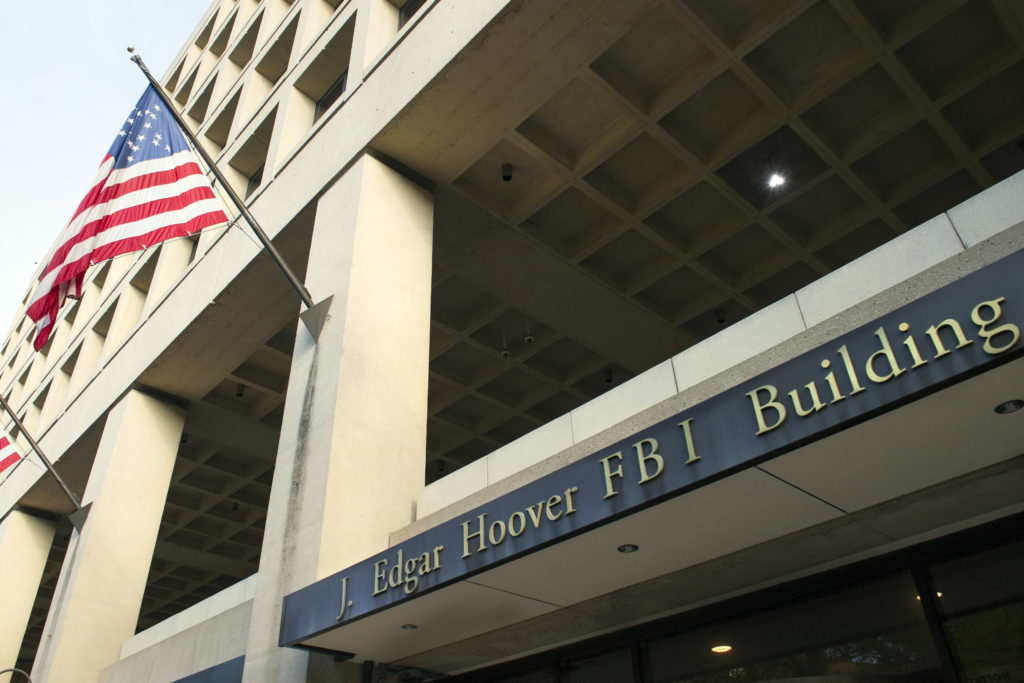
The FBI has been reviewing the handling of thousands of terrorism-related tips and leads from the past three years to make sure they were properly investigated and no obvious red flags were missed, The Associated Press has learned. The review follows attacks by people who were once on the FBI’s radar but who have been accused in the past 12 months of massacring innocents in an Orlando, Florida, nightclub, injuring people on the streets of New York City, and gunning down travelers in a Florida airport. In each case, the suspects had been determined not to warrant continued law enforcement scrutiny months and sometimes years before the attacks. The internal audit, which has not been previously reported, began this year and is being conducted in FBI field offices across the country. A senior federal law enforcement official described the review as an effort to “err on the side of caution.” The audit is essentially a review of records to ensure proper FBI procedures were followed. It’s an acknowledgment of the challenge the FBI has faced, particularly in recent years, in predicting which of the tens of thousands of tips the bureau receives annually might materialize one day into a viable threat. Investigations that go dormant because of a lack of evidence can resurface instantly when a subject once under scrutiny commits violence or displays fresh signs of radicalization. FBI Director James Comey has likened the difficulty to finding not only a needle in a haystack but determining which piece of hay may become a needle. Though there’s no indication of significant flaws in how terrorism inquiries are opened and closed, the review is a way for the FBI to “refine and adapt to the threat, and part of that is always making sure you cover your bases,” said the law enforcement official, who was not authorized to discuss the matter by name. The pace of the FBI’s counterterrorism work accelerated with the rise of the Islamic State group, which in 2014 declared the creation of its so-called caliphate in Syria and Iraq and has used sophisticated propaganda to lure disaffected Westerners to its cause. By the summer of 2015, Comey has said, the FBI was “strapped” in keeping tabs on the group’s American sympathizers and identifying those most inclined to commit violence. Social media outreach by IS has appealed to people not previously known to the FBI but also enticed some who once had been under scrutiny to get “back in the game,” said Seamus Hughes, deputy director of George Washington University’s Program on Extremism. “The fact that there was a physical location and a caliphate announced, it helped kind of drive folks back in when they might have drifted away,” Hughes said. The review covers inquiries the FBI internally classifies as “assessments” — the lowest level, least intrusive and most elementary stage of a terror-related inquiry — and is examining ones from the past three years to make sure all appropriate investigative avenues were followed, according to a former federal law enforcement official who spoke on condition of anonymity to discuss the process. Assessments are routinely opened upon a tip — whether from someone concerned about things such as activity in a neighbor’s garage, a co-worker’s comments or expressions of support for IS propaganda — and are catalogued by the FBI. The bureau receives tens of thousands of tips a year, and averages more than 10,000 assessments annually. FBI guidelines meant to balance national security with civil liberties protections impose restrictions on the steps agents may take during the assessment phase. Agents, for instance, may analyze information from government databases and open-source internet searches, and can conduct interviews. But they cannot turn to more intrusive techniques, such as requesting a wiretap or internet communications, without higher levels of approval and a more solid basis to suspect a crime or national security threat. The guidelines explicitly discourage open-ended inquiries and say assessments are designed to be “relatively short,” with a supervisor signing off on extension requests. Many assessments are closed within days or weeks when the FBI concludes there’s no criminal or national security threat, or basis for continued scrutiny. The system is meant to ensure that a person who has not broken the law does not remain under perpetual scrutiny on a mere hunch that a crime could eventually be committed. But on occasion, and within the past year, it’s also meant that people the FBI once looked at but did not find reason to arrest later went on to commit violence. In the case of Omar Mateen, that scrutiny was extensive, detailed and lengthy. Mateen, who shot and killed 49 people at an Orlando nightclub in June, was investigated for 10 months in 2013 and interviewed twice after a co-worker reported that Mateen had claimed connections to al-Qaida. As part of a preliminary investigation, agents recorded Mateen’s conversations and introduced him to confidential sources before closing the matter. That kind of investigation is more intensive than an assessment and permits a broader menu of tactics, but it also requires a stronger basis for suspicion. Mateen was questioned again in 2014 in a separate investigation into a suicide bomber acquaintance. Comey has said he has personally reviewed that inquiry’s handling and has concluded it was done well. The FBI in 2014 also opened an assessment on Ahmad Khan Rahimi, who last September was charged in bombings in Manhattan and New Jersey, based on concerns expressed by his father. The FBI said it closed the review after checking databases and travel and finding nothing that tied him to terrorism. Esteban Santiago, the man accused in the January shooting at the Fort Lauderdale, Florida, airport that killed five people, had also been looked at by the FBI. He had walked into the bureau’s office in Anchorage, Alaska, two months earlier and claimed his mind was being controlled by U.S. intelligence officials. In that case, too, the FBI closed its assessment after interviewing family members and checking databases. Each act of
Activists: Charities must move galas from Donald Trump’s Mar-a-Lago
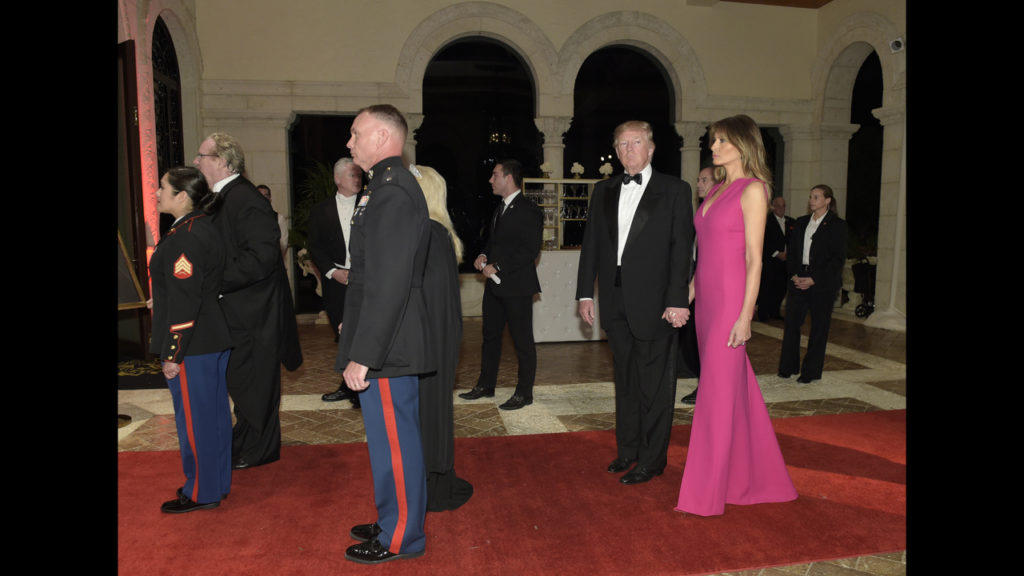
Since President Donald Trump opened the gold-infused ballroom at his Mar-a-Lago resort almost 12 years ago, it has been a popular rental for the American Red Cross, hospitals, medical researchers and other charities for fundraising galas where the wealthiest donors are wined and dined, often netting $1 million or more. But Trump’s election puts charities in an awkward position over choosing the resort — recently dubbed the president’s Winter White House — for events they may have planned more than a year in advance. With Trump placing a moratorium on refugees and immigrants from seven Muslim-majority countries and his promises to dismantle the Affordable Care Act, activists are pressuring charities such as the Dana-Farber Cancer Institute and the Cleveland Clinic to move or cancel their galas this month. As the International Red Cross held a gala fundraiser Saturday at Mar-a-Lago, about three thousand demonstrators marched nearby to protest Trump’s now-blocked executive order temporarily limiting immigration. The event ended peacefully, and there were no arrests. So far, no known Mar-a-Lago charity events have been moved or canceled. More than 2,000 people, including faculty and students from Harvard Medical School, have signed an online petition demanding that Boston-based Dana-Farber move or cancel its Feb. 18 “Discovery Celebration,” featuring a performance by Grammy Award winner David Foster. The cheapest ticket is $1,250. Petition organizer George Karandinos, a 30-year-old Harvard medical student from Houston, said he understands that canceling or moving the Dana-Farber event would be difficult, “but they can make a public moral stand that is in line with their stated values” of diversity and supporting scientific exchanges across borders. Plus, he said, a cancellation might attract additional donors. A similar open letter, signed by more than 1,100 including doctors and medical students, demands that Cleveland Clinic move its Feb. 25 “Reflections of Versailles: A Night in the Hall of Mirrors” gala. Its cheapest ticket also is $1,250. Both Dana-Farber and the Cleveland Clinic said they won’t move or cancel their events, but added that it doesn’t mean they support the president’s policies. Applications filed with the town of Palm Beach show Dana-Farber expects to raise $1.25 million after paying expenses of $250,000. The Red Cross says it will make $950,000 after spending $400,000. A portion of those expenses would go to Mar-a-Lago. The town did not immediately release Cleveland Clinic’s application. Dana-Farber President Dr. Laurie H. Glimcher issued a statement saying she shares the protesters’ concerns about the immigration moratorium and what it will mean for doctors, scientists, students and patients from the affected countries, but that the protesters are unrealistic. “The forthcoming fundraiser in Palm Beach is planned many months in advance, and raises critical funds to support this lifesaving work. Contracts have been signed, and a large number of people have committed to attend. Canceling the event outright would only deny much-needed resources for research and care,” she said. The Cleveland Clinic issued a similar statement. “The sole purpose of our event in Florida is to raise funds for important research to advance cardiovascular medicine that improves patient care,” spokeswoman Eileen Sheil said. “In no way is this connected to anything else but helping patients. The event has been held there for years, well before the election.” Mar-a-Lago director Bernd Lembcke didn’t return a call seeking comment. The Trump Organization didn’t respond to an emailed request for comment. Photos of the ballroom complex, including the Donald J. Trump Grand Ballroom, show large open spaces lighted by chandeliers and surrounded by massive archways and columns. Bathroom fixtures are gold-plated. The walls, ceiling and columns have intricate decorations gilded with gold leaf. Many organizations have been using the venue for years to host their wealthiest donors. Trump opened the 20,000 square-foot ballroom complex in late 2005 — the inaugural event was the reception for his wedding to Melania Trump. He told reporters the complex cost $35 million, but Palm Beach building records indicate the cost was lower, likely no more than $15 million. Mary Simboski, who teaches in Boston University’s fundraising management program, said that while she could not speak to any specific event, major galas like the ones the Cleveland Clinic, Red Cross and Dana-Farber are throwing take a year to plan and are a major part of an organization’s fundraising operation. Picking a site like Mar-a-Lago often comes down to location, size, cost and availability, she said, and has nothing to do with politics. Projecting that the groups could perhaps garner more financial support by canceling the event is wishful thinking, she said. “Hope is not a strategy,” Simboski said. Republished with permission of the Associated Press.
Alabama worried Florida, Georgia water settlement could impact its rivers

Water wars between Florida and Georgia are heating up again over the directive by a U.S. Supreme Court special master ordering the states to reach a settlement that could have a substantial impact on Alabama rivers As reported by POLITICO Florida’s Bruce Ritchie, Alabama is questioning a directive by special master Ralph Lancaster asking Florida and Georgia to settle its long-running water dispute, particularly over the suggestion the two states consider getting water from other sources during times of drought. The debate between Florida and Georgia began in 2013 after the devastation of the Apalachicola Bay oyster bed, leading Florida to request the U. S. Supreme Court to intervene by placing a limit on Georgia’s water consumption. Ritchie writes that Alabama, in a letter to the court last week, expressed concern that those “other sources” – particularly “the importation of water from outside the ACF (Apalachicola-Chattahoochee-Flint River) Basin” – include water from rivers flowing from Alabama into Georgia, such as the Coosa and Tallapoosa rivers. Alabama has not been named in the case since Florida, and the court, acknowledged the only issue at hand is with Georgia’s water consumption. However, Ritchie notes that Alabama feels that if water transfers are included in a settlement, the state would be forced to join the action. Also, Alabama argues that the court does not have authority to order water transfers from areas other than the ACF system. Birmingham Attorney John C. Neiman Jr., representing Alabama, wrote in a letter to Lancaster: “If the court contemplates a decree authorizing transfers from interstate river basins flowing into Alabama as a result of settlement discussions or otherwise, Alabama would respectfully request that it first receive notice of that possibility and be given the opportunity to assert its interests in an appropriate way. “To this end, Alabama is willing to participate in any negotiations between Florida and Georgia that address this issue, and will separately ask Florida and Georgia to include Alabama in any such negotiations,” Neiman concluded.
Donald Trump drama rolls on: Disputes, falsehoods hit transition

The drama, disputes and falsehoods that permeated Donald Trump‘s presidential campaign are now roiling his transition to the White House, forcing aides to defend his baseless assertions of illegal voting and sending internal fights spilling into public. On Monday, a recount effort, led by Green Party candidate Jill Stein and joined by Hillary Clinton‘s campaign also marched on in three states, based partly on the Stein campaign’s unsubstantiated assertion that cyberhacking could have interfered with electronic voting machines. Wisconsin officials approved plans to begin a recount as early as Thursday. Stein also asked for a recount in Pennsylvania and was expected to do the same in Michigan, where officials certified Trump’s victory Monday. Trump has angrily denounced the recounts and now claims without evidence that he, not Clinton, would have won the popular vote if it hadn’t been for “millions of people who voted illegally.” On Twitter, he singled out Virginia, California and New Hampshire. There has been no indication of widespread election tampering or voter fraud in those states or any others, and Trump aides struggled Monday to back up their boss’ claim. Spokesman Jason Miller said illegal voting was “an issue of concern.” But the only evidence he raised was a 2014 news report and a study on voting irregularities conducted before the 2016 election. Trump met Monday with candidates for top Cabinet posts, including retired Gen. David Petraeus, a new contender for secretary of state. Trump is to meet Tuesday with Tennessee Sen. Bob Corker, who is also being considered more seriously for the diplomatic post, and Mitt Romney, who has become a symbol of the internal divisions agitating the transition team. Petraeus said he spent about an hour with Trump, and he praised the president-elect for showing a “great grasp of a variety of the challenges that are out there.” “Very good conversation and we’ll see where it goes from here,” he said. A former CIA chief, Petraeus pleaded guilty last year to a misdemeanor charge of mishandling classified information relating to documents he had provided to his biographer, with whom he was having an affair. Vice President-elect Mike Pence, who is heading the transition effort, teased “a number of very important announcements tomorrow” as he exited Trump Tower Monday night. Pence is said to be among those backing Romney for State. Romney was fiercely critical of Trump throughout the campaign but is interested in the Cabinet position, and they discussed it during a lengthy meeting earlier this month. Other top Trump allies, notably campaign manager Kellyanne Conway, have launched a highly unusual public campaign to warn the president-elect that nominating Romney would be seen as a betrayal by his supporters. Conway’s comments stirred speculation that she is seeking to either force Trump’s hand or give him cover for ultimately passing over Romney. Three people close to the transition team said Trump had been aware that Conway planned to voice her opinion, both on Twitter and in television interviews. They disputed reports that Trump was furious at her and suggested his decision to consider additional candidates instead highlighted her influence. Conway served as Trump’s third campaign manager and largely succeeded in navigating the minefield of rivalries that ensnared other officials. Trump is said to have offered her a choice of White House jobs — either press secretary or communications director. But people with knowledge of Conway’s plans say she is more interested in serving as an outside political adviser, akin to the role President Barack Obama‘s campaign manager David Plouffe played following the 2008 election. The wrangling over the State Department post appears to have slowed the announcements of other top jobs. Retired Gen. James Mattis, who impressed Trump during a pre-Thanksgiving meeting, was at the top of the list for Defense secretary, but a final decision had not been made. Trump was also considering former New York City Mayor Rudy Giuliani for Homeland Security secretary, according to those close to the transition process. Giuliani was initially the front-runner for State and is still in the mix. But questions about his overseas business dealings, as well as the mayor’s public campaigning for the job, have given Trump pause. Those close to the transition insisted on anonymity in commenting because they were not authorized to publicly discuss the private process. Even as Trump weighs major decisions that will shape his presidency, he’s been unable to avoid being distracted by the recount effort. He spent Sunday on a 12-hour Twitter offensive that included quoting Clinton’s concession speech, in which she said the public owed Trump “an open mind and the chance to lead.” His final tweets challenging the integrity of an election he won were reminiscent of his repeated, unsubstantiated assertions during the campaign that the contest might be rigged. Those previous comments sparked an outcry from both Clinton and some Republicans. Clinton lawyer Marc Elias said the campaign has seen “no actionable evidence” of voting anomalies. But the campaign still plans to be involved in Stein’s recount to ensure its interests are legally represented. Trump narrowly won Wisconsin, Pennsylvania and Michigan. All three would need to flip to Clinton to upend the Republican’s victory, and Clinton’s team says Trump has a larger edge in all three states than has ever been overcome in a presidential recount. Republished with permission of the Associated Press.
It’s likely to be a close election in Florida, again
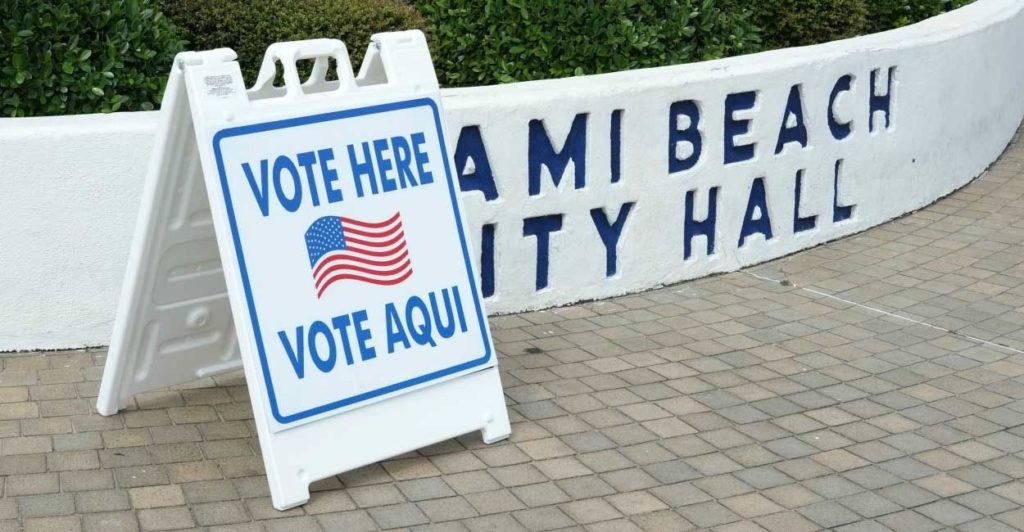
Another close election in Florida? Count on it. Through Friday, 2,268,663 Democrats and 2,261,383 Republicans had cast ballots by mail or at early voting sites – a difference of 7,280 in favor of Democrats. Overall, more than 5.7 million Floridians have voted, or nearly 45 percent of those registered. That far surpasses 2012 totals, when 4.8 million Floridians cast ballots before Election Day. As early voting was set to end in 51 of Florida’s 67counties Saturday, Hillary Clinton and Donald Trump once again were campaigning in the Sunshine State. Their running mates Tim Kaine and Mike Pence and other top surrogates have been frequent visitors in the state that’s a must-win for Trump’s presidential campaign. “How many of you have already voted?” Clinton asked a crowd in Broward County. The response was enthusiastic cheers. “OK, so that means you’ve got time to get everybody else to get out and vote, right?” Earlier in Tampa, Trump told supporters at a rally that 66 of the state’s 67 counties supported him in Florida’s primary last March. “Florida is just a place I love – my second home, I’m here all the time. I might know Florida better than you do,” Trump said. “I see maybe more enthusiasm right now than I did (in March).” Florida’s 29 electoral votes are the biggest prize in Tuesday’s presidential election among states that could swing to either candidate. In 2000, Florida set the standard for close presidential elections when George W. Bush beat Al Gore by 537 votes out of about 6 million cast. It took five weeks to call the election in the state that determined the presidency. Republican Sen. Marco Rubio was campaigning across north Florida Saturday, starting with an event at a Pensacola Beach bar. He’s being challenged by Democratic U.S. Rep. Patrick Murphy. Unlike Murphy, Rubio has avoided campaigning with his party’s presidential nominee. While he supports Trump, he has condemned his words and behavior. Murphy attended a Broward County rally with Clinton and later planned to attend a St. Petersburg concert with singer Jon Bon Jovi and Kaine. While only 16 counties will continue early voting on Sunday, they are some of the state’s largest, including Democratic strongholds of Miami-Dade, Broward and Palm Beach. Democrats were planning “souls to the polls” events encouraging African-American churchgoers to take advantage of the last day of early voting in the counties where polls will be open. Republished with permission of the Associated Press.
Florida’s I-4 corridor is where Election 2016 could be won
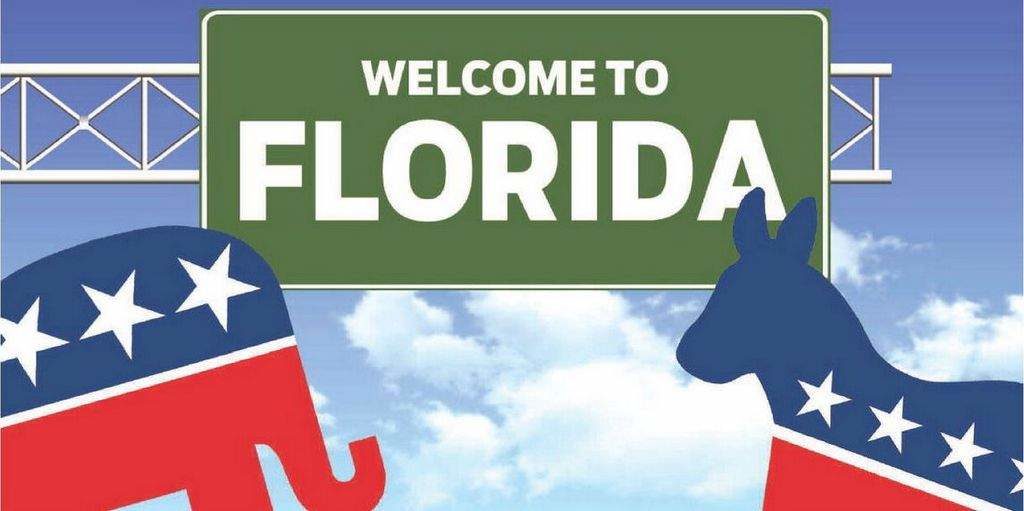
The Interstate 4 corridor stretching from the Tampa Bay area through Orlando to Daytona Beach is a bellwether of the nation’s largest swing state, where both candidates campaigned vigorously last week and President Barack Obama on Friday called on voters here to support Hillary Clinton. North Florida is predictably Republican, and South Florida remains strongly Democratic, leaving a swath around Interstate 4 as the state’s primary battleground. The 6.5 million residents living around the 140-mile highway reflect the diversity of the state, and they account for a third of Florida’s registered voters. The large bustling metros of Tampa and Orlando are broken up by the citrus and cattle fiefdoms of Polk County. Kissimmee in suburban Orlando has become a destination for Puerto Ricans fleeing the deteriorating economy on the island. The suburbs of Orlando give way to the motors sports traditions of Daytona Beach and the gateway to the Kennedy Space Center. More than a third of I-4 voters are registered Democrats, a third are registered Republicans and a quarter have no party affiliation. — John Long is looking for someone who will overturn the political apple cart, and sees Trump as the answer. He feels there are too many ties between Big Business and Washington politicians, and small businesses are overlooked. Clinton is at the center of that nexus, and she hasn’t been held accountable for using a private email server as secretary of state, he said. “That’s what I like about Donald Trump. He’s an outsider,” said Long, a former Kennedy Space Center worker, who now runs a bicycle shop on Florida’s Space Coast. “Hillary is too embedded in the political machine, in it for her own desire for power at the expense of the nation.” — Robert Thomas wants to do his civic duty and vote for president but finds shortcomings in both major-party candidates. So he is voting for Libertarian candidate Gary Johnson. Thomas, who is African-American, worries about some of the racist views of Trump supporters. But he feels the Democratic administration of President Barack Obama only “has paid a lot of lip-service” to middle-class economic recovery from the recession, and it’s not enough for him to vote for Clinton, even though he respects her experience. “I’m not voting for either,” Thomas, a retired soldier from the elite 101st Airborne Division who has voted Republican most of his life, said while fishing on the Cocoa Beach Pier. “I’m going to vote for Gary. Put him on the ticket.” — Donna-Lynne Dalton, who is voting for Clinton, has two things on her mind: higher wages and better benefits for her workers. Dalton, a business agent with Teamsters Local 385, who represents Walt Disney World workers, including costumed characters, worries that a Trump presidency would chip away at workers’ rights. Workers “don’t have a lot of rights as it is, but a union contract does protect them,” Dalton said in her union hall office in Orlando. “Trump has made it clear that he’s not in favor of any of that.” — Robin Rowbotham insists she isn’t throwing her vote away by voting for Green Party candidate Jill Stein. Rowbotham, who dances under the stage name “Tesla” at the famous Tampa strip club, Mons Venus, said she wanted to support Clinton but changed her mind after the debates reinforced her belief that the Democrat is dishonest. She calls Trump’s discussion about groping women without their permission unacceptable. “As a dancer, I get guys say things but I do not condone it. I feel that if you say something, chances are you are going to do it,” she said in the club’s dressing room of the club. “Do we want somebody like that leading the country?” Club owner Joe Redner, an independent candidate for state Senate, agreed. “My dancers here, they don’t allow these customers to treat them like that. Why the hell should a candidate for the president of the United States be allowed to treat women like that,” he said. — Diana Font had been wavering about who to support for president. The Orlando-area event planner and executive director of the local Puerto Rican Chamber of Commerce was a supporter of Marco Rubio in the Republican primary and wanted to stay true to her party. But Trump’s multiple bankruptcies raised red flags about his ability to lead the country, and the allegations that he had groped women without their permission, also gave her deep pause. The last debate was the final straw, said the lifelong Republican, since she felt he was whining “that everybody is against him.” She is voting for Clinton. Republished with permission of The Associated Press.
Alabama joins Florida to request cap on Georgia water use

Alabama filed a brief Friday supporting Florida’s federal lawsuit to cap Georgia’s water use from federal reservoirs that terminate in Apalachicola Bay. The state cited its “long experience combating Georgia’s excessive withdrawals” and said Georgia “has largely chosen not to invest its resources in reservoirs and other infrastructure” as the population of Atlanta has outgrown its water supply. Florida filed the suit in 2013, arguing that Georgia’s excessive water use has been damaging the seafood industry in Apalachicola Bay, and Alabama is one of several parties to file a brief in support of Florida’s case ahead of the Oct. 21 deadline set by the court. In addition to Alabama, the National Audubon Society, Defenders of Wildlife, Florida Wildlife Federation, and Apalachicola Riverkeeper filed a joint brief in support of Florida’s suit. Those groups said the “long-term ecological sustainability of this vital and vibrant ecosystem depends, critically, on freshwater flows moving through the system at the right times” and that Georgia’s increased water consumption from the Apalachicola-Chattahoochee-Flint system have dried out the Apalachicola River, “threatening the survival of numerous species and jeopardizing the economic vitality of local communities.” Georgia has its share of supporters as well, including Colorado, which argued in a brief that Florida must not only prove it has been damaged by the increased water use, but be able to show that the damage incurred is greater than the benefit received by Georgia. The case is set to go to trial Oct. 31 in Portland, Maine.
Candidates clash in battleground states, as Donald Trump’s path narrows
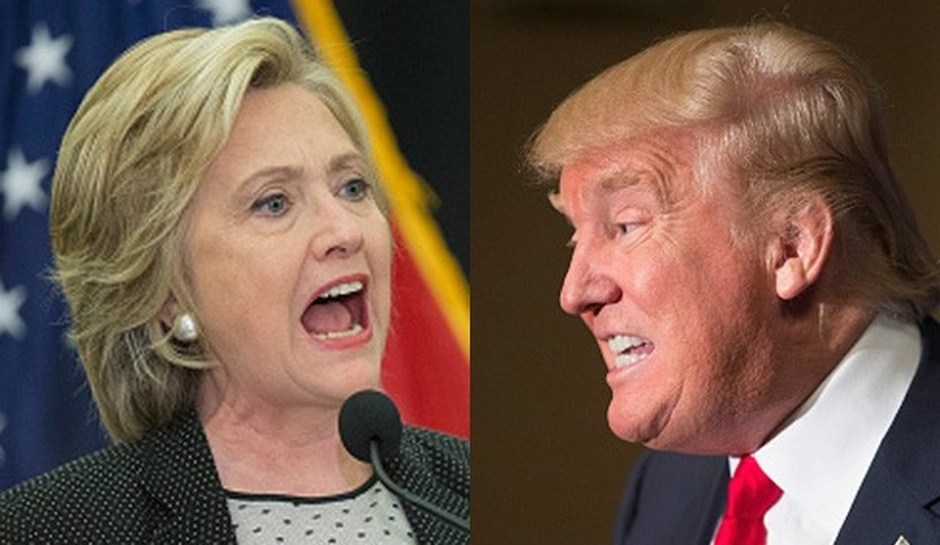
Election Day just 15 days off, Donald Trump is fighting to preserve his narrow path to the presidency in must-win Florida on Monday as Hillary Clinton tries to slam the door on her Republican opponent in battleground New Hampshire. At the same time, Democrats continue to get help from President Barack Obama, whose high job approval numbers have made him a political force in the sprint to Nov. 8. The president lashed out at Trump and praised Clinton as he campaigned Sunday in Nevada, a competitive state in the race for the White House and the Senate. Obama told Nevadans they have a winning hand in Clinton and Senate candidate Catherine Cortez Masto, who is locked in a tight race to fill the seat being vacated by retiring Democratic Sen. Harry Reid. Democrats need to retain the Nevada Senate contest and pick up four new seats elsewhere to claim the Senate majority if Clinton wins. Many Republicans fear that Trump’s struggles could drag down his party’s chances in competitive House and Senate elections across the nation. The president was unsparing Sunday in his criticism of Trump, describing the billionaire businessman as unfit to be president. Obama also railed against Republicans and conservative media outlets for promoting “all kinds of crazy stuff” about him and his party’s leaders. He cited as an example the years-long questions from Trump and others about whether he was born in the U.S. “Is it any wonder that they ended up nominating somebody like Donald Trump?” Obama said. Trump, meanwhile, lashed out at his Democratic opponent on Twitter on Monday, claiming that “Crooked Hillary” wants the United States to accept “as many Syrians as possible” from the war-torn region. Clinton has said Obama’s plan to admit 10,000 Syrian refugees this fiscal year is a good start, but that the nation “needs to do more.” Trump was campaigning Monday in Florida, a state his advisers concede he must win to have any chance at becoming president. The spotlight on Florida shined brighter on Monday also because in-person early voting was beginning across 50 counties, including the state’s largest: Broward, Duval, Hillsborough, Miami-Dade, Orange and Palm Beach. The remaining counties will start in the coming week. Early voting by mail has been underway for weeks. Nearly 1.2 million voters in Florida have already mailed in ballots. The state has nearly 13 million registered voters. Clinton’s running mate, Virginia Gov. Tim Kaine, was set to make two campaign stops in Florida on Monday. Clinton plans to visit the state Tuesday. Clinton’s focus on Monday was New Hampshire, a state that offers just 4 electoral votes compared to Florida’s 29, but marks a key piece to Trump’s increasingly narrow path to the 270 electoral votes needed to win the presidency. The Trump campaign acknowledged its challenge in a Monday fundraising email, conceding that victories in tossup states like Florida, Ohio, Iowa, Nevada and North Carolina wouldn’t be enough to reach 270. “Polls show us close in New Hampshire, Colorado, and Pennsylvania. Winning just any one of those states would lead us to victory,” the campaign wrote. Republished with permission of the Associated Press.
Business owners replace idealists in legal-pot movement

Business owners are replacing idealists in the pot-legalization movement as the nascent marijuana industry creates a broad base of new donors, many of them entrepreneurs willing to spend to change drug policy. Unlike in the past, these supporters are not limited to a few wealthy people seeking change for personal reasons. They constitute a bigger coalition of business interests. And their support provides a significant financial advantage for pro-legalization campaigns. “It’s mainly a social-justice movement. But undoubtedly there are business interests at work, which is new in this movement,” said Kayvan Khalatbari, a one-time pot-shop owner and now head of a Denver marijuana consulting firm. The donors offer a wider foundation of support for the marijuana-related measures on the ballot next month in nine states. The campaigns are still largely funded by national advocacy organizations such as the Drug Policy Alliance, the Marijuana Policy Project and the New Approach PAC. But those groups are less reliant on billionaire activists. On the other side, legalization opponents are attracting new support from businesses as diverse as trucking, pharmaceuticals and even gambling. In 2012, Colorado and Washington became the first states to pass ballot initiatives legalizing recreational marijuana for adults. Oregon, Alaska and Washington, D.C., followed in 2014. The result is a bigger pool of existing businesses that see expansion potential in more states authorizing use of the drug. Take Darren Roberts of Boca Raton, Florida, co-founder of High There!, a social network for fans of pot. He donated $500 this year to a campaign to legalize marijuana for medical purposes in Florida. Roberts is also encouraging his customers to donate to legalization campaigns in their own states. “I would say it’s a combination of both the philanthropic social interest and the potential financial interest,” Roberts said. All five states considering recreational marijuana — Arizona, California, Maine, Massachusetts and Nevada — have seen more money flowing to groups that favor legalization than to those fighting it. The same is true in the four states considering starting or reinstating medical marijuana — Arkansas, Florida, Montana and North Dakota. The donors who contribute to anti-legalization efforts have changed, too. Some deep-pocket donors who drove opposition campaigns in years past are opening their pocketbooks again. Casino owner Sheldon Adelson of Nevada, for example, gave some $5 million in 2014 to oppose a medical-pot measure in Florida. This year, as his home state considers recreational pot and Florida takes a second look at medical marijuana, Adelson has spent $2 million on opposition in Nevada and $1 million to oppose legalization in Massachusetts. Other casinos are donating to Nevada opposition efforts, too, including MGM Resorts International and Atlantis Casino & Resort. Nevada gambling regulators have warned that marijuana violates federal law. Some new opponents have also emerged, moving beyond the typical anti-pot base that includes law enforcement groups, alcohol companies and drug-treatment interests. A pharmaceutical company that is working on a synthetic version of marijuana’s psychoactive ingredient, Insys Therapeutics Inc., has given at least $500,000 to oppose full marijuana legalization in its home state of Arizona. The company did not return a message for comment on the donation. Company officials said in a statement last month that Insys opposes the Arizona ballot measure because marijuana’s safety has not been demonstrated through the federal regulatory process. Other new names popping up in opposition disclosures include U-Haul, which gave $25,000 to oppose legalization in Arizona, and Julie Schauer, a Pennsylvania retiree who gave more than $1 million to a group opposing legalization. Neither returned messages seeking comment on their donations. Smaller donors to opposition campaigns say they are hopelessly outgunned by the young pot industry, but are giving out of a sense of duty. “Everyone’s talking about it like it’s a done deal, but I can’t sit by when I’ve seen firsthand the destruction that marijuana does to people,” said Howard Samuels, a drug-treatment therapist in Los Angeles who donated some $20,000 to oppose recreational legalization in California. Samuels and other marijuana opponents insist that the pot industry cynically hopes to get more people addicted to the drug to line its own pockets, comparing pot providers to tobacco companies. But marijuana-industry donors insist that they are simply carrying on a tradition started by the tie-dye wearing drug activists who pushed legalization long before there was any business model attached to it. They insist they would contribute financially even without any money-making potential. “When a movement becomes an industry, of course the advocacy picture gets shuffled,” said Bob Hoban, a Denver attorney specializing in marijuana law and a $1,000 donor to the Marijuana Policy Project. “It shifts away from activists to more traditional business interests, because the skill sets don’t exactly transfer.” Republished with permission of the Associated Press.
Early voting offers positive signs in key states for Hillary Clinton
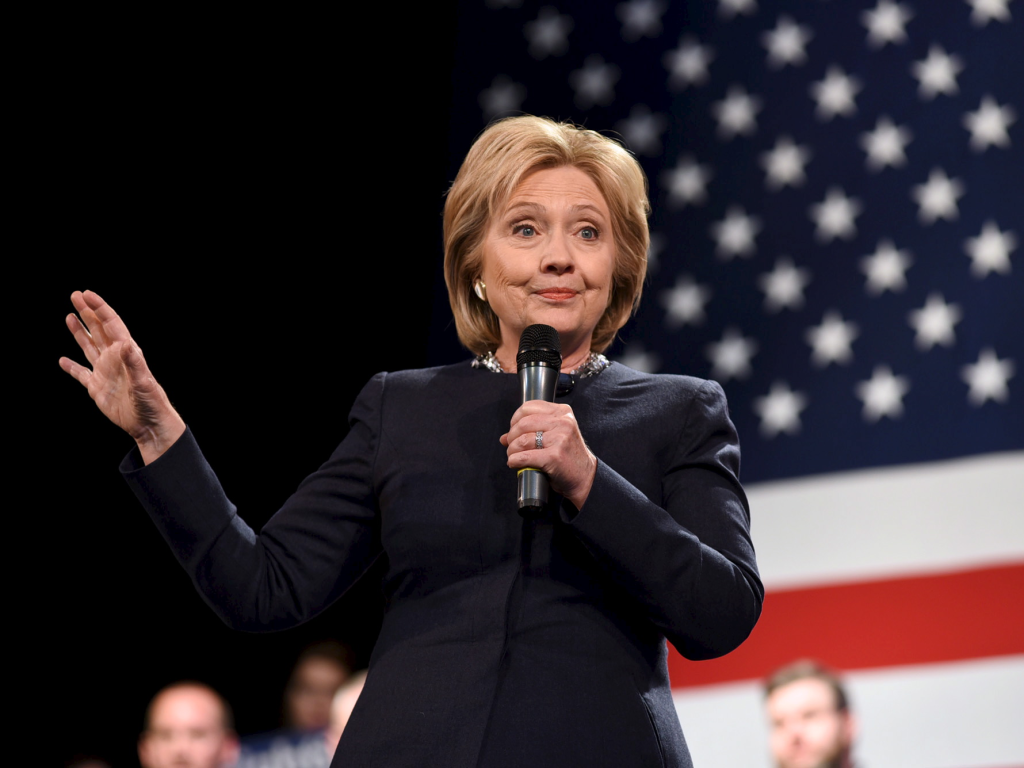
Advance voting shows positive signs for Hillary Clinton in two states that could help her lock up the presidency, North Carolina and Florida, as the election enters a critical, final stretch. There are encouraging signs for Donald Trump in Ohio. That’s a vital state for the Republican presidential nominee, but a victory there would be only one of many steps he would need to win. The latest data, representing at least 758,000 ballots cast – and millions more requested – highlight Trump’s difficult path to the White House. And these numbers may understate his problems: The figures don’t yet reflect any voter response to the recording released last Friday of Trump making crude remarks about women. Even if Trump can capture two states he’s targeted – Pennsylvania and Ohio – he would need to pull off major upsets in multiple Democratic-leaning states to reach the 270 electoral votes in the state-by-state contest for the presidency. If Clinton picks up states Republicans won in 2012, Trump’s task becomes harder. In a statement, the Republican National Committee, which provides much of the get-out-the-vote effort for Trump as well as congressional candidates, said it remained confident its “significant and early investment” will put the party in a strong position. But Kevin Madden, a Republican strategist who worked on past presidential campaigns, sees the Democrats with the advantage. Madden cited the Clinton campaign’s especially heavy investment in data analytics and getting supporters to vote. “For Clinton, it may be now starting to pay its dividends,” he said. Advance voting has surged nationally as states try to boost turnout. Early voting can be done by mail or in voting booths that open before the Nov. 8 Election Day. More than 45 million people are expected to vote early, with preliminary data compiled by The Associated Press suggesting that advance voting could reach 40 percent of all votes nationally. While Democrats tend to do better in early voting, Republicans usually post an initial lead with mail-in ballots before Democrats surpass them when most in-person voting begins in mid- to late October. In North Carolina, a must-win state for Trump, early voters typically make up 60 percent of total ballots. At least 141,000 have been requested and 31,000 have been returned, according to AP data. By party, Republicans had a slight edge over Democrats in ballots returned, 38 percent to 37 percent, or 300 ballots. At this point in 2012, Republicans had posted a significant 2-to-1 lead, boosted by older white voters. Republican Mitt Romney narrowly won the state. So far in 2016, white votes are down by more than one-third while the number of black voters, who tend to favor Democrats, slipped lower. In-person voting, critical for Clinton, begins in the state next Thursday. Democrats are stepping up outreach in North Carolina and will begin launching “souls to the polls” programs on Oct. 23, taking church attendees to vote immediately after Sunday services. Popular among African-Americans, “souls to the polls” played a substantial role in boosting Democratic turnout and record shares of black voting for Barack Obama in 2008 and 2012. In Florida, a record 2.9 million people have requested ballots, or more than one-third of the total voters in 2012. Republicans are running ahead in ballot requests, 41 percent to 38 percent. But that reflects a narrowing gap. Two weeks ago, Republicans led by 5 percentage points, as state Democrats stepped up efforts to boost mail-in balloting among blacks and Hispanics. In the last week, new ballot requests from Democrats outnumbered those from Republicans by nearly 2-to-1, according to data analyzed for the AP by Catalist, a Democratic firm that helped run data operations for Obama’s 2008 race. A change in Florida laws is likely partly responsible for the increase in ballot requests – those who voted in 2014 were able to automatically receive ballots this year. It’s a much better initial position for Democrats compared to 2008, the most recent data available. At that time, Republicans held a much bigger lead in ballot requests, 50 percent to 32 percent. Obama won the state by 2.8 percentage points. Still, Trump may be holding steady elsewhere, such as Ohio. After a record pace for weeks, the number of ballot requests fell 2.6 percent from a similar period in 2012. The state does not provide breakdowns by party registration, but data compiled by Michael McDonald, a University of Florida professor who runs the U.S. Elections Project, show bigger declines in requests in the heavily Democratic counties of Cuyahoga and Franklin. By race, voter modeling by Catalist for the AP found the share of Ohio ballot requests by white voters was up, to 91 percent from 89 percent. The black share declined from 9 percent to 7 percent. Early voting started a week later for Ohio in 2016 after the Supreme Court last month declined to restore the state’s “Golden Week,” a period when voters could register and vote at the same time. That period was popular among black voters. Republished with permission of the Associated Press.
Alabama sends resources to Florida to assist with Hurricane Matthew response
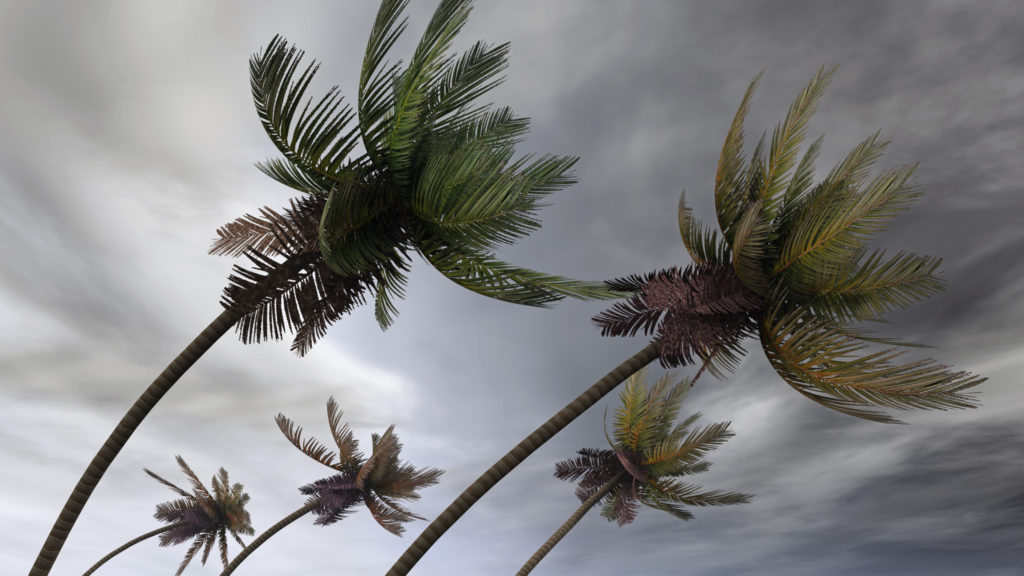
As Florida readies herself for the impact of Category 4 Hurricane Matthew, Alabama is prepping to help. The Yellowhammer State is already sending personnel and resources to Florida to assist with hurricane response efforts. Gov. Robert Bentley made the announcement Thursday, saying the Yellowhammer State has received numerous requests for assistance from Florida as Hurricane Matthew approaches and intensifies. Thus far assistance has been requested from the Alabama National Guard, Alabama Emergency Management Agency (AEMA), and the Alabama Department of Public Health (ADPH) through the Emergency Management Assistance Compact (EMAC). “Our disaster response teams are always ready to act at a moment’s notice during emergency situations,” Bentley said. “I am proud of our men and women who are dedicating their time and expertise to help others during natural disasters. Alabama stands ready to assist Florida, or any other state that requests our support, as they respond to Hurricane Matthew.” AEMA will deploy an Emergency Operations Center Augmentation Team to support the Florida Division of Emergency Management at their Emergency Operation Center. Their primary role will be to support their Florida counterparts as they experience an overwhelming need to coordinate their state response efforts. “When Alabama is not impacted we always stand ready to support other states in need of assistance,” AEMA Director Art Faulkner said. “We always remember the assistance that has been provided to our state following catastrophic events and want to return the favor.” Florida also has requested aviation assets and air crews from the Alabama Army National Guard (ALARNG). ALARNG plans to send four UH-60 Blackhawk and two CH-47 Chinook helicopters and 33 air crew soldiers to assist with lift capabilities transporting personnel and supplies as needed. These soldiers will be activated under State Active Duty beginning Friday and arrive in Florida Saturday. ADPH will deploy two Medical Needs Shelter Teams and a Public Health Nurse Strike Team to assist with medical needs in the areas hit by the hurricane in Florida. They will set up medical care shelters and medical strike teams to provide for the impacted residents in the area. The teams are scheduled to arrive at the staging area in Tallahassee Saturday afternoon.
Can’t compete with Matthew: Candidates cut Florida campaigns

Like thousands of other Americans, Donald Trump and Hillary Clinton scrambled their plans Thursday in Florida, where Hurricane Matthew threatened to wreak havoc on efforts to comb the state for votes in the campaign’s final stretch. The ferocious storm barreling toward the coast, the Clinton campaign moved staff and out-of-state volunteers working on the east coast of Florida to hotels and other housing inland and was closing all offices in the affected areas until safe to return, the campaign said. Sensitive to being seen as trying to capitalize on the storm, the campaign temporarily pulled its ads running on local Weather Channel stations in Florida. The Trump campaign scrapped plans to hold a rally farther up the coast in North Carolina, and canceled a Florida event featuring Trump’s daughter, Ivanka. Trump offered prayers for those in the path. “Hoping the hurricane dissipates, but in any event, please be careful,” the Republican tweeted. Far away, both candidates continued to prepare for their second debate, a town hall-style faceoff on Sunday. Trump was to holding his own town hall Thursday in Sandown, New Hampshire, an event that could serve as a dry run. Clinton was to hold fundraisers in New York. Along the Southeast coast, the Category 4 storm, carrying winds up to 125 mph, was likely to bring dangerous conditions to Georgia, South Carolina and, possibly, North Carolina. But its impact on delegate-rich Florida was what had the campaigns on high alert. The state is a must-win for Trump and an intense battleground for get-out-the-vote operations. Vote-by-mail ballots are being sent to voters across the state this week, leaving the potential for ballots to arrive just as voters temporarily abandon their homes. So far, a record 2.5 million people — nearly one-third of those who voted in 2012 — have made requests for the early ballots. The timing of the storm raised questions about how the campaigns will handle problems from mail-in ballots that haven’t been received, as well as whether local officials will seek an extension of the Oct. 11 voter registration deadline. Officials said they were hoping that any disruption to voting, this time, would be less severe than what occurred with Superstorm Sandy, which struck New Jersey and New York in the week before the 2012 presidential election and kept many voters away from polls. At least half of Florida voters typically cast ballots early, either by mail or in person, compared with just a fraction in New York and New Jersey. Early in-person voting in Florida doesn’t begin until Oct. 24, two weeks before Election Day on Nov. 8. Neither New York nor New Jersey comes anywhere close to Florida’s stature when it comes to this year’s presidential campaign. Candidates and outside groups are on track to spend $11 million this week on television advertising in the state — the most in any week of the general election, according to Kantar Media’s political ad tracker. They’re set to continue big spending next week, with $8.4 million on deck. Neither New York nor New Jersey comes anywhere close to Florida’s stature when it comes to this year’s presidential campaign. Candidates and outside groups are on track to spend $11 million this week on television advertising in the state — the most in any week of the general election, according to Kantar Media’s political ad tracker. They’re set to continue big spending next week, with $8.4 million on deck. As of Thursday morning, neither campaign had announced plans to pull down ads because of the storm, although that could change quickly. Florida Power & Light estimates 1.2 million customers could lose power, leaving campaigns little reason to waste money in some markets. In one of the markets expected to take the brunt of the storm, Miami, planned spending is unchanged this week and next, Kantar Media shows. The storm posed unusual challenges and opportunities for the candidates, particularly Trump, who is trying to prove his leadership. The New York businessman has sometimes appeared clumsy in his response to crises — including sending out tweets in which he seemed to pat himself on the back for predicting terror attacks. In the aftermath of the flooding in Louisiana earlier this year, Trump and his running mate, Mike Pence, rushed to the Baton Rouge area to tour the floor damage. During the trip, Trump criticized the president and later Hillary Clinton for failing to do the same, despite a request from local officials to steer clear. Both campaigns canceled events in Florida. President Barack Obama had planned to campaign for Clinton in Tampa on Wednesday. Republished with permission of the Associated Press.


